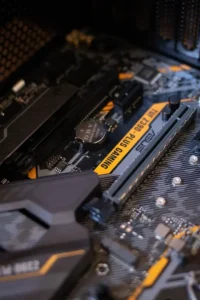The demand for professionals with expertise in Very Large Scale Integration (VLSI) design in today’s rapidly evolving semiconductor industry is high. From AI-driven applications to automotive technology and consumer electronics, VLSI design courses play a crucial role in shaping the future of electronic systems. Enrolling in a VLSI design certification course provides engineers with the essential skills required to thrive in this competitive domain.
-
Digital and Analog Circuit Design
A strong foundation in digital and analog circuit design is crucial for any VLSI professional. A certification course covers fundamental concepts such as logic gates, flip-flops, multiplexers, and combinational/sequential circuits. On the analog side, students learn about amplifiers, oscillators, and mixed-signal circuits that are widely used in high-performance chip designs.
-
ASIC and FPGA Design
Application-Specific Integrated Circuits (ASICs) and Field-Programmable Gate Arrays (FPGAs) are at the core of modern semiconductor technologies. A VLSI design certification course provides hands-on training in ASIC design flow, synthesis, and FPGA programming. Engineers gain expertise in RTL design using hardware description languages (HDLs) like Verilog and VHDL, enabling them to develop customized semiconductor solutions.
-
System-on-Chip (SoC) Architecture
With the increasing complexity of electronic systems, System-on-Chip (SoC) design has become a critical area of VLSI. Certification courses introduce learners to SoC architecture, including processor integration, memory management, and interconnect design. Understanding SoC design helps engineers develop highly integrated and power-efficient semiconductor solutions.
-
Low-Power VLSI Design
Power consumption is a major concern in modern electronic devices, from smartphones to embedded systems. Low-power VLSI design techniques, such as clock gating, power gating, and voltage scaling, are essential for optimizing chip performance. Engineers trained in low-power design can contribute to the development of energy-efficient semiconductor solutions for various applications, including IoT and automotive electronics.
-
Verification and Testing Methodologies
Ensuring the reliability and functionality of a semiconductor chip requires rigorous verification and testing. Certification courses provide in-depth knowledge of verification techniques, including functional verification, formal verification, and simulation methodologies. Engineers also learn about Design for Testability (DFT) and Automatic Test Pattern Generation (ATPG), which are critical for detecting manufacturing defects in ICs.
-
Physical Design and Layout
A crucial step in VLSI design is physical design, which involves transforming a circuit schematic into a manufacturable layout. Learners acquire expertise in floor planning, placement, routing, and clock tree synthesis. Hands-on training with industry-standard tools helps engineers gain practical experience in chip layout optimization.
-
Embedded Systems and Firmware Development
VLSI design is closely linked to embedded systems, where microcontrollers and processors play a significant role. A comprehensive certification program provides insights into firmware development, embedded programming, and real-time operating systems (RTOS). These skills are valuable for engineers working in consumer electronics, automotive applications, and industrial automation.
-
Industry-Standard EDA Tools Training
Practical exposure to Electronic Design Automation (EDA) tools is an integral part of VLSI training. Courses provide hands-on experience with tools like Cadence, Synopsys, and Mentor Graphics, which are widely used in the semiconductor industry. Familiarity with these tools helps engineers bridge the gap between academic knowledge and industry requirements.
Conclusion
VLSI design courses are crucial stepping stones for anyone looking to make a mark in the semiconductor industry. By gaining expertise in digital and analog circuit design, ASIC and FPGA development, SoC architecture, low-power design, and verification techniques, professionals can position themselves for high-demand roles in leading semiconductor companies. With industry-oriented training, hands-on experience, and expert mentorship, ChipEdge empowers learners to build a successful and rewarding career in VLSI design.
Don’t miss the opportunity to future-proof your career—enroll in a ChipEdge certification course today!














